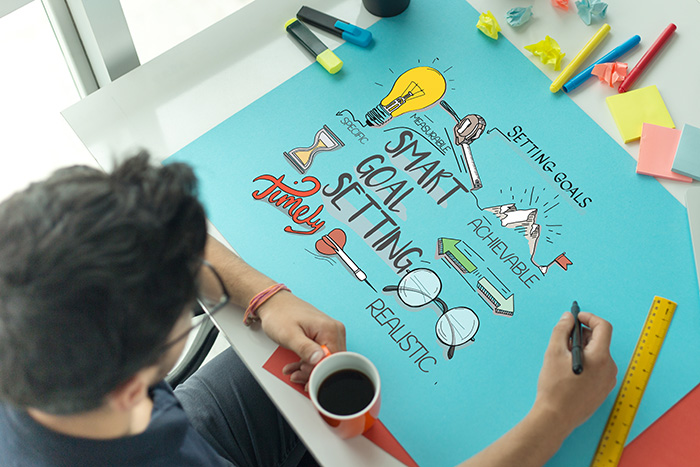
“What do you want to be?” – is a question that the world asks of us and that we ask ourselves around Grade 12. But, unfortunately, as we grow older and enter a career industry, we assume that we have found the answer and stop reflecting on this question.
But we humans are here on Earth on a journey to be our personal best version. And for that to happen, we need to ask this of ourselves every single day. “What do I want to be?” What kind of a person do I want to become tomorrow? “What would I be if I could be anything?”
Goal setting has been hailed as one of the crucial elements of improving our happiness & well-being. Psychology researcher Sonja Lyubomirsky, in her book, The How of Happiness, talks about several benefits that goal setting can have on our well-being. These include the sense of purpose and a feeling of control they bring to our lives; the increase in our self-esteem; the structure and interest it adds to our daily lives; the grounding it offers us, the social connections they lead to and so on.
Vision, Mission & Life Goals
Most businesses have a publicised Vision and Mission statement. And although, at times, it may feel more of a cliché than a genuine reflection of the organisational identity, these statements do actually serve a very crucial objective. The ‘Vision’ underlines the long term goal in terms of the futuristic impact it aims to make. On the other hand, the’ Mission’ highlights the purpose and relevance of the business as actionable, shorter-term goalposts in the journey towards achieving the overarching vision.
Likewise, we must sift through our interests and passions and create a manifesto of meaningful life goals. A larger vision for our life towards which you move forward through smaller mileposts of intrinsic goals.
Most people, out of necessity and otherwise, tend to limit our ambitions to extrinsic ones – the kind that makes us conform to others’ expectations or standards of success. These may be attaining good grades, getting a high paying salary, or buying a fancy car - dreams that are external signs of self-worth. On the other hand, intrinsic goals such as those related to personal growth, relationships, community engagement or other personally meaningful objectives are deeply connected to our passions, interests and core values. Research has shown that prioritising intrinsic aspirations can increase our happiness, self-esteem and overall well-being because they foster our fundamental need for autonomy, competence, and relatedness - who we are as a person.
Hence, right now, this moment, pause everything else and ask yourself this: what is your ultimate aim? What do you want to do tomorrow, in 5 years, in 10 years & in 30 years that will make meaning for you & make you happier?
SMART Goals
To make your goal setting most effective, the action steps involved should be meaningful, achievable, and measurable. As you develop your list, work with the principle of designing your objectives to be “SMART” -- that is, make them -
S = Specific: Think of the What, Who, Why, When, Where, Which and of the action plan.
M = Measurable: Think of what achieving the goal would look like - the endpoint of your aspirations.
A = Achievable: This involves the “How” - how to make the aims attainable and the resources needed for it.
R = Relevant: Make sure each action step aligns with your larger purpose.
T = Time-bound, with a deadline: Keep realistic timelines to motivate yourself and keep you accountable.
The 1% Principle
There is immense potential inside each of us to grow in unimaginable ways if only we believed in ourselves enough to take that first step and remain consistent in our efforts. One idea that has struck a chord with me is the 1% Principle, showing the compound interest of self-improvement.
In the book Atomic Habits, James Clear notes that with a daily improvement of just 1%, we can see a compounded change when repeated consistently for 365 days.
1% better every day for 1 year: (1.01) 365 = 37.7
1% worse every day for 1 year: (0.99)365 = 00.03
Thus, even tiny incremental growth can, over time, build up enough to produce a remarkable difference in the long run.
Dr Baby Saamuel is the Vice-Chairman, Knowledge Oman and is Ex-Chairman, Indian Schools in Oman. You can contact him at [email protected] for queries or suggestions